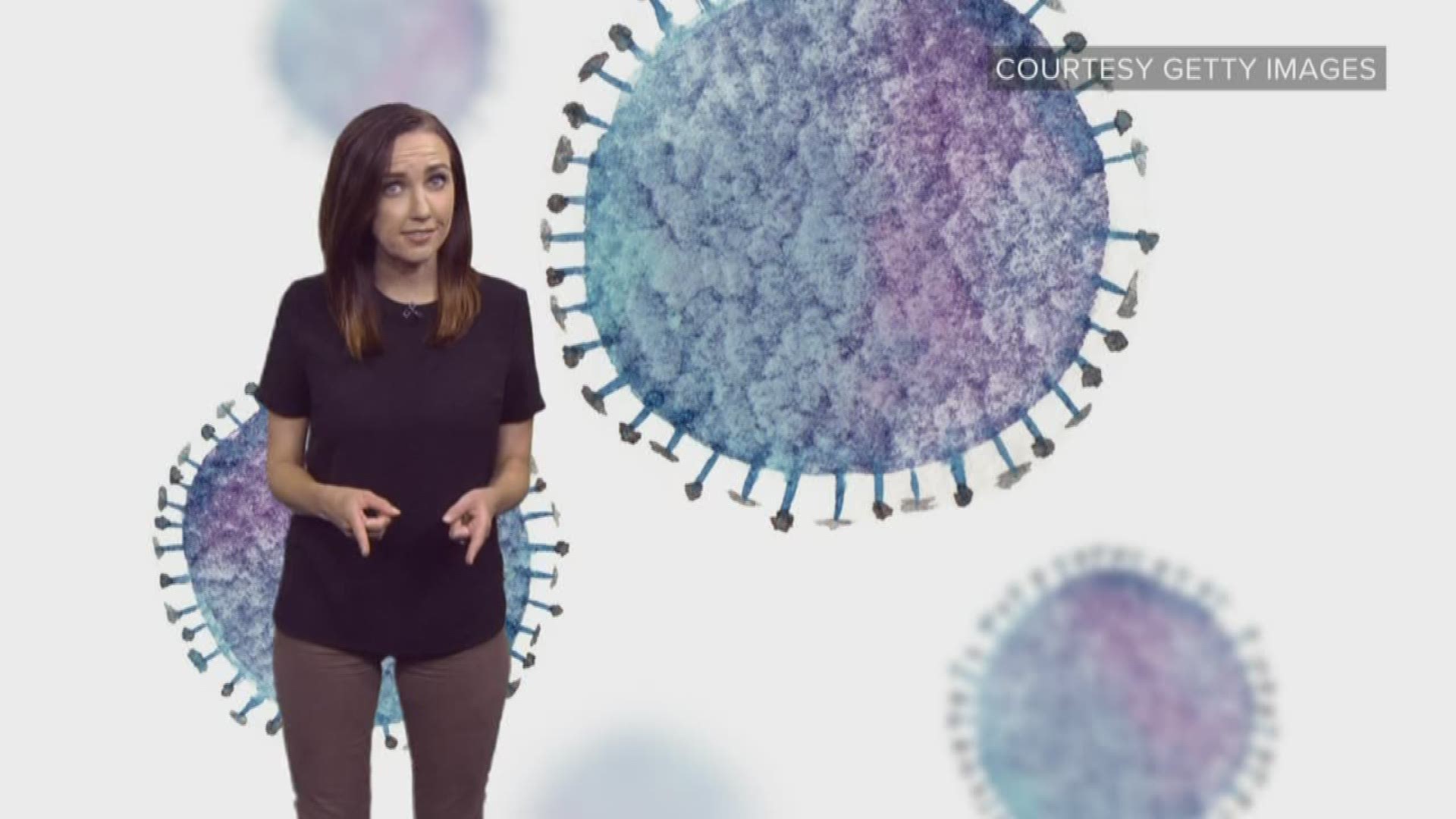GOLDEN VALLEY, Minn. — So your co-worker is a coughing, sneezing mess who should have stayed home. Used tissues pile up in his trash bin. You can’t even imagine what lurks on his keyboard or phone. And he's NOT the only one.
Question is, how do you keep yourself from becoming the infected with the crud making the rounds at work?
For many, the answer is to quickly reach for the bottle of hand sanitizer. But new research out of Japan shows that bottle may be providing a false sense of security if the co-worker is infected with influenza-A, a strain of the flu.
Researchers from Kyoto Profectural University of Medicine have been testing the effectiveness of ethanol-based hand sanitizers. Their findings show it takes four minutes of rubbing ethanol-based sanitizers on your hands before the influenza-A virus is killed.
Lead researcher Ryohei Hirose, PH.D., MD, says influenza-A viruses that are coughed up by an infected person are encased in a mucus. Scientists found ethanol-based hand sanitizers need four minutes to cut through the mucus coating.
On the other hand, the research team says hand washing for at least 30 seconds, even without soap, is more effective at eliminating the spread of influenza-A virus. The Centers for Disease Control and Prevention say regular hand washing is one of the best ways to remove germs, avoid getting sick, and prevent the spread of germs to others.
"You're scrubbing your hands, you've got running water, you're sort of breaking the little bonds that the bacteria or the virus make with your skin cells and they're just being flushed away," said Dr. Craig Hedberg with the University of Minnesota's School of Public Health, as to why hand washing is so effective.
Dr. Hedberg says this study doesn't necessarily mean you have to ditch the hand sanitizer, just know that it is not a replacement for washing your hands.
"If you're in a setting where you can't wash your hands, it gives you some protection. It's an additional thing you can do to fill the gap," he said.
There is a right and wrong way to wash your hands. The CDC video on the right way can be seen on the agency website.
The Japanese study was published this week by the journal mSphere.
Find more videos on our KARE 11 YouTube Channel.

